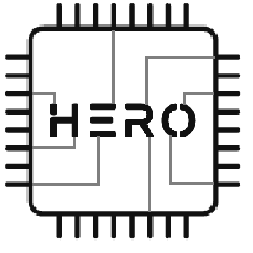Heterogeneous systems - hardware software co-design
With the exploding need for high-performance computing, we are at the dawn of the heterogeneous era, where all future computing platforms are likely to embrace heterogeneity. In a heterogeneous system, there can be several different computational units such as multi-core central processing units (CPUs), graphics processing units (GPUs), field-programmable gate arrays (FPGAs), digital signal processing units (DSPs), and artificial intelligence (AI) accelerators/engines.
One major driving force for heterogeneous systems is the next generation intelligent, adaptive and autonomous systems that will form the base for coming products like autonomous vehicles and autonomous manufacturing.
With a diverse range of architectures (on a single chip or distributed), a main challenge is to make use of the enormous computational power in the best way, while still meeting several criteria like performance, energy efficiency, time predictability, and dependability.
The overall goal of this research group is to tackle the following scientific areas:
• Hardware/software co-design and integration
• System architecture and specialization
• AI and deep learning acceleration
• Model-based development of predictable software architectures
• Pre-runtime analysis of heterogeneous embedded systems
